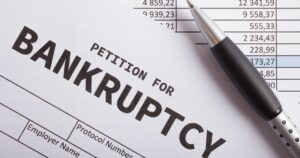Filing for bankruptcy the first time can be devastating. You feel as though you have failed yourself financially, and maybe failed your loved ones. It is embarrassing to get up in front of a judge and admit that you cannot pay your bills and you need a bailout. How can you prevent filing for bankruptcy again?
However, you should never look at bankruptcy as a negative. Bankruptcy was designed to help consumers who are struggling financially, and it is never something to be embarrassed about. But, you must do your part to avoid filing for bankruptcy again. Once you have filed for bankruptcy, the courts bar you from filing again for several years. Furthermore, a second bankruptcy may not be seen by the courts as innocent, and the process becomes much more difficult.
You attend credit counseling, learn how to budget, and get financial tools when you file for bankruptcy because the courts want you to succeed with your financial freedom. In addition to those means, you should deploy strategies to help you stay on track and avoid filing for bankruptcy ever again.
How to Prevent Filing Bankruptcy in the Future
Whether you file for Chapter 7 or Chapter 13, it is recommended you take credit counseling courses and financial health courses long after you go through the court-ordered versions. By doing so, you may prevent financial issues in the future. Also, you should implement a safety protocol to handle bills if you fall behind again. Look for ways to stay on top of your finances so you do not find yourself in the position where you may have to file for bankruptcy just to find relief.
Stay on Top of Your Budget
As part of the court-ordered classes, you will learn how to make a budget. It is your job to stay on top of that budget once you are done with bankruptcy. Be proactive with the budget, and continually review your income and expenses each month. Make sure you leave wiggle room in the budget to set aside money and save it. Do not touch your savings either. Your savings are there to help if you have an emergency.
Stop Using Credit Cards
After you file for bankruptcy, it is hard to get credit. But, you may find yourself the target of aggressive “credit rebuilding” credit card offers, which you should avoid. Not only do they have a down payment, but they have outrageous interest rates that could quickly force you into the exact financial position you want to avoid.
If you cannot afford to buy something with cash, do not use a credit card.
Never Take an Advance on Your Paycheck
Paycheck advances or payday loans are one of the worst financial tools out there. They have horrible interest rates, fees, and most people cannot get ahead once they start the vicious cycle. If you must take a loan on your paycheck, you are already living above your means, and you need to readjust the budget.
Never Buy More House than You Can Afford
The rising numbers in bankruptcy cases in the United States come from people buying homes that are too much for their budget. When you buy a house, do not just buy what the bank says you can afford. Instead, look at your budget. Crunch the numbers for expenses, including the miscellaneous items that the bank does not consider (e.g., groceries, gas, and other spending).
Be smart about your home purchases. Ask yourself if you could afford the payment if you lost your job or your household became a one-income house instead of a two-income house for a little while. Also, would you be able to save three to six months’ worth of mortgage payments at the rate you are considering? If not, then you are purchasing more house than you can safely afford.
Find Ways to Increase Income and Decrease Expenses
Do you have a way to increase your income? Maybe you can take overtime shifts at work, get a second part-time job, or even turn a hobby into a way to make money. You might not want to work a second job. But if you are starting to fall behind again and do not want to file bankruptcy a second time, you need to increase your income so that you can pay things down.
Also, look for ways to decrease expenses. Most Americans are living well beyond their means, and do not have to. Simple cuts might only save a few dollars here and there, but the smaller cuts you make, the more significant that savings adds up to. Some ways you could reduce costs include:
- Canceling magazines and newspaper subscriptions
- Stopping cable and home phone service
- Adjusting your cell phone service to the minutes and data you use
- Reducing the number of times you eat out during the week
- Decreasing coffee runs and making your morning coffee at home
- Transferring credit card balances to a lower interest credit card and canceling high-interest ones
- Stop making small trips to the store that eventually add up to higher monthly grocery purchases
If Bankruptcy Is the Only Option, Talk to an Attorney
When you decide that your only option is to file for bankruptcy, whether it is your first or second time you need to file, speak with an attorney that has experience with Chapter 7 and Chapter 13. A consumer bankruptcy attorney is your best resource for filing. Contact us to schedule a consultation.
Sometimes, your attorney can help find alternatives, such as loan modifications, so that you do not have to file for bankruptcy.

